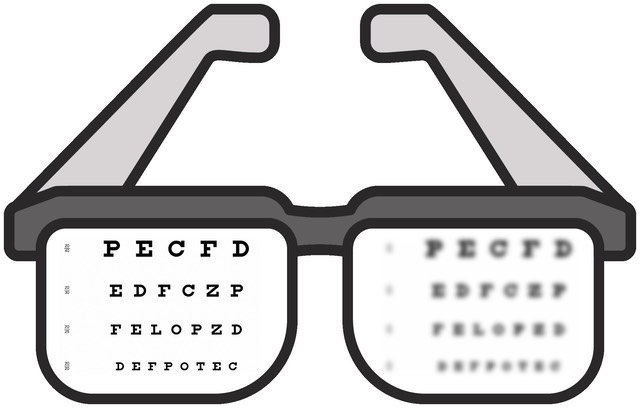
Having just gone through my annual (except for 2020) eye exam, I'm reminded of the trial and error process that optometrists go through to verify what the best possible correction might be for your eyes. That refraction process involves switching different corrections in and out, and is the source of the "better, or worse" sequence you go through.
What's occurred to me is that a whole heck of a lot of gear buyers are doing a much more random refraction-like test. I'm going to push my tongue deep into my cheek here, but the process usually goes like this:
- "I'm pretty sure my gear isn't the best."
- "I wonder if Brand/Product X is better?"
- [buys Brand/Product X]
- Repeat
One thing that comes up for me in eye exams is just how much to correct, and how. I do significant work at three common distances: reading, computer, and general. I'm old, so presbyopia means my eyes don't do a good job of changing focus distance, and even among the young that process isn't necessarily perfect. I'm strongly right-eye dominant but it's also my poorer eye, which means that there's also a balancing act between the eyes that needs to be juggled. My left and right eyes have slightly contradictory aberrations, tending to squish things slightly perpendicular to one another.
More than once in the full exam—and mine tends to run long because my doctor is fully dedicated to giving me the best possible result knowing that I so fully rely upon my eyes in my work—we backed off a correction to something not quite as good in terms of absolute acuity. That's because of all the balls we juggle as we work towards a solution that's the best balance for everything. (Disclosure: we eventually decided I should have cataract surgery on one eye earlier than is necessary as the cataract was just beginning to get in the way of some of the balancing. I'll be taking a short break soon while I have the surgery done and recover from it.)
We juggle plenty of balls with our camera gear, too. And it's balance you should be seeking most of the time, not today's "best possible" (which will not be the same tomorrow anyway).
The question I have for you today is "do you know what it is you're balancing?" Because, if you don't, then you're going to have trouble finding the right balance; you're going to start a whole random walk of "better or worse" (and probably casual) testing, and you might not even be doing the right tests in the first place.
I can think of a ton of things people are trying to balance right now:
- size/weight
- sensor size
- dynamic range
- autofocus performance
- resolution
- acuity
- battery life
- ergonomics
- file size
- lens choice
- buffer
- frame rates
- video quality
- cost
The list actually goes on and on. And on. Moreover, things like "autofocus performance" may mean "usually gets it right without any interaction from me," or it may mean "nails focus every time when I use all the attributes of the system properly." And yes, there is a difference between those two. I'm of the latter persuasion, but most of those raving about autofocus on their cameras on the Internet (good or bad) are of the former school of thought.
As much as you might think you can get "everything," you can't. This is why I started the "all-around camera" comments in my camera suggestions quite some time ago. "All around" is about balance in performing all the photography tasks you might encounter, not one specific one. The camera I deem to be "best all-around" has tended to change every couple of years. Currently my three top all-around cameras IMHO are the Sony A1, Nikon D850, and Canon R5, and in that order. But note the price differences! The number two in my list is the least expensive by at least the cost of one good lens to go with it.
Balance. That's today's thought word.
Are you balanced photographically? What would put you into better balance? How's your balance point different than those you look to for information and advice? Will the product you currently lust after—admit it, there's at least one—take you out of balance or put you in better balance? How would you know?
For professionals, there's always a small set of questions they can ask themselves that relate to balance: (a) am I doing better work today than I was before? (b) is my work holding up against the work of my competitors? and (c) is there work I could get if I had something I don't currently have today? The "perfectly balanced pro" should probably answer Yes, Yes, and No. If their answers are No, No, and Yes, then their gear closet and technique capabilities are widely out of balance.